Hildreth Meière Documentary Series - Watch Trailer
Hildreth Meière Documentary Series - Watch Trailer
Commissioned by: Bertram Goodhue AssociatesIconographer: Hartley Burr AlexanderArtistic Collaborator: Hartley Burr AlexanderMedium: glazed ceramic tileExecuted by: R. Guastavino
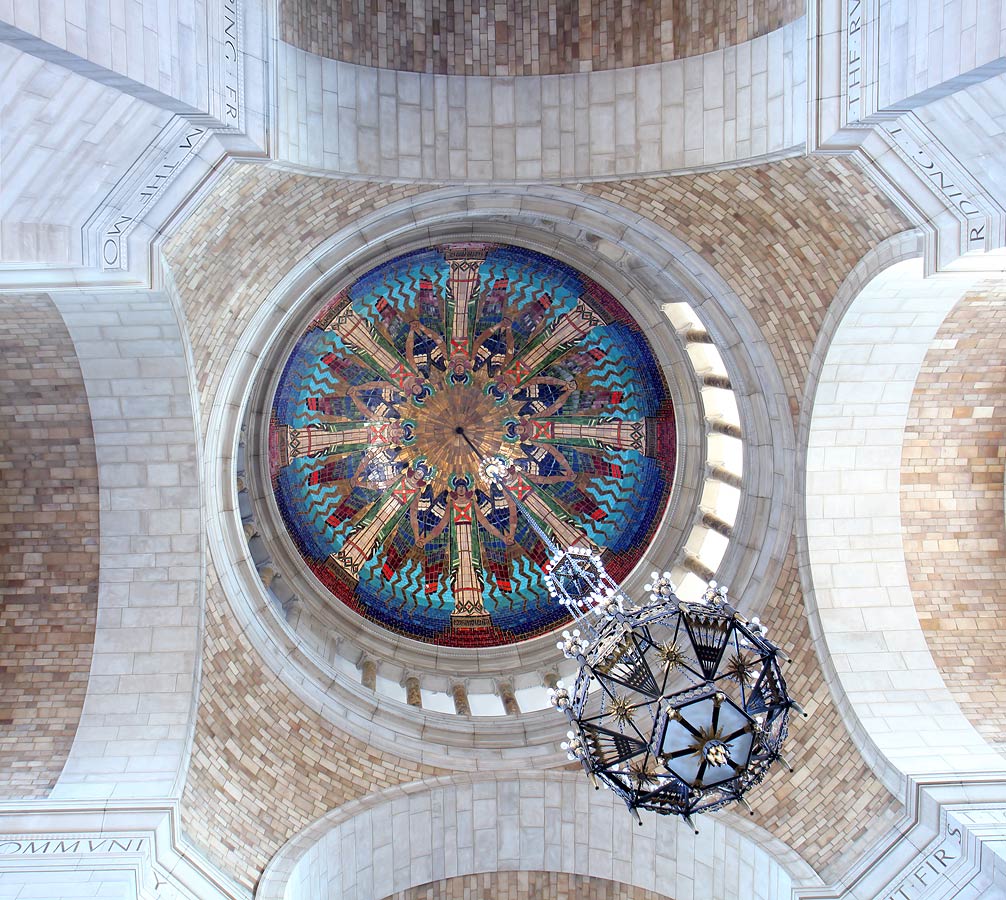
Colorful dome seven stories above rotunda floor
Iconographer Hartley Burr Alexander’s use of symbolism at the capitol culminates in the seven-story rotunda dome, where Hildreth Meière represented eight winged virtues that together comprise the Virtues of the State upon which civilized society depends. The helmeted, Art-Deco-style figures, identified on their bases as Charity, Hope, Courage, Temperance, Wisdom, Faith, Justice, and Magnanimity, join hands to uphold the State. R. Guastavino executed Meière’s entire design in vividly colored, glazed ceramic tile, so that no acoustic tile is exposed as it is in the Senate Chamber and Vestibule.1
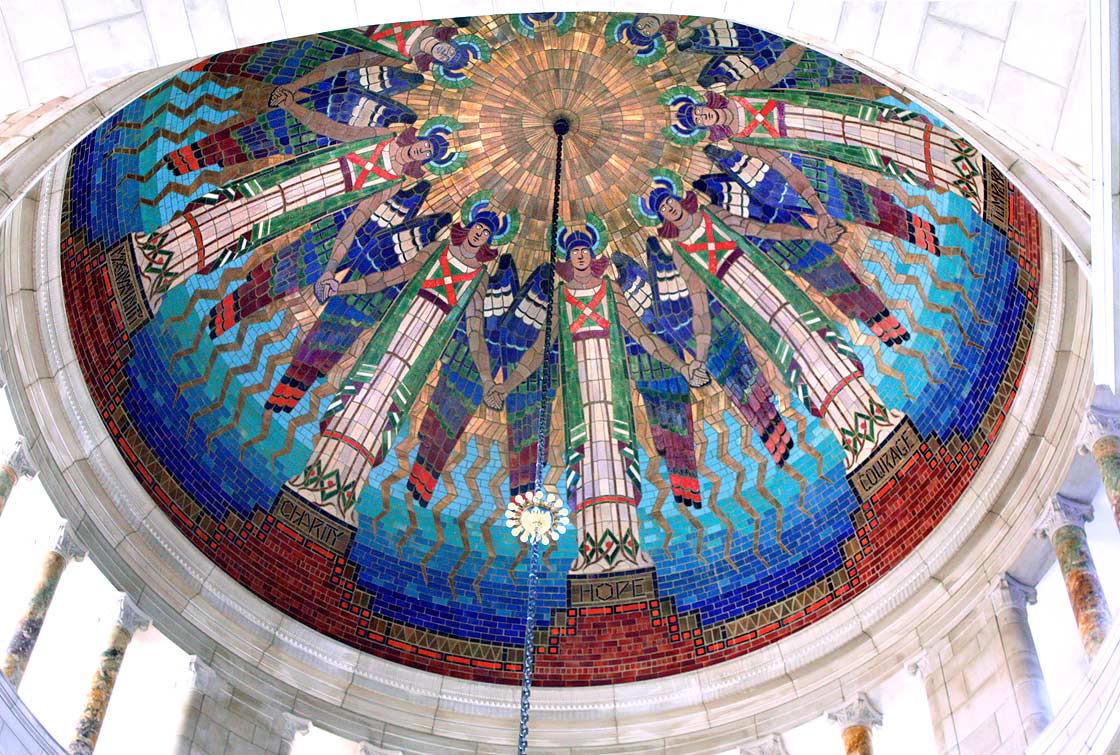
Detail of rotunda dome with Virtues of the State
Alexander wrote to Francis Mayers of Bertram Goodhue Associates:
If one think[s] of the whole design as a wheel, the present proportions are admirable, but if (standing as I suppose people will) in the gallery below the dome, it will be viewed as a series of pedestalled images, I think the weight of the foundation might well be increased—possibly also that of the decorative band which girdles the whole.2
Meière’s “decorative band which girdles the whole” and connects the bases of the Virtues is reminiscent of stepped border designs found in Native American beadwork. Meière repeated the stepped border in several of her later Art Deco designs, including the north wall surrounding the rose window at the Cathedral Basilica of Saint Louis.
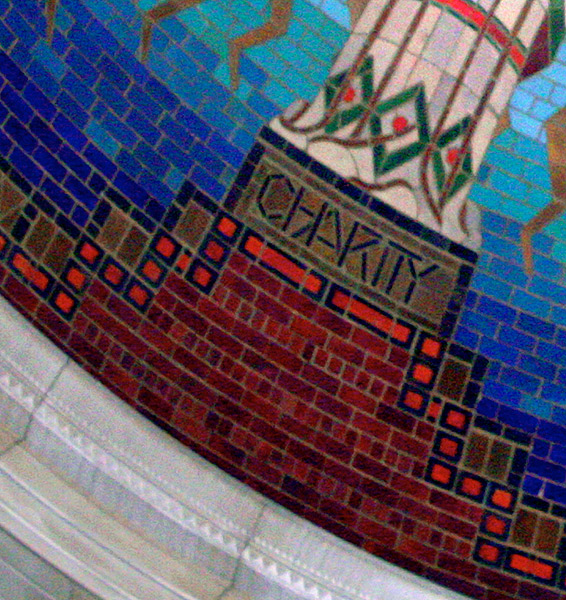
Stepped border design on rotunda dome
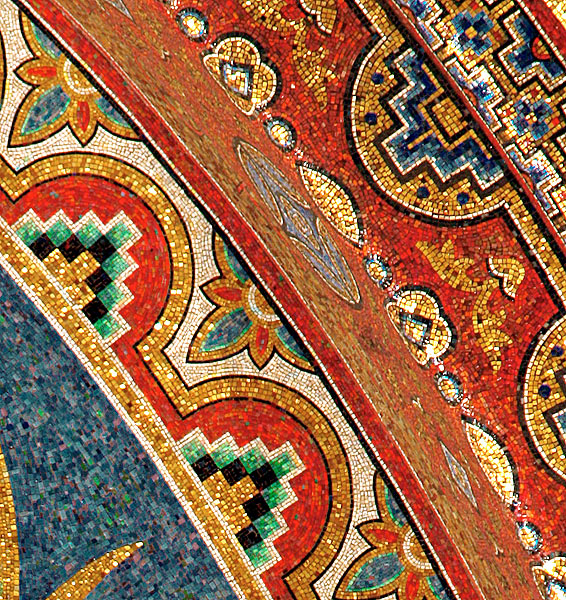
Stepped border design at Cathedral Basilica of Saint Louis
Alexander requested that Meière provide him with a color sketch of one of the figures so that he could see the angle of the each Virtue relative to the dome.
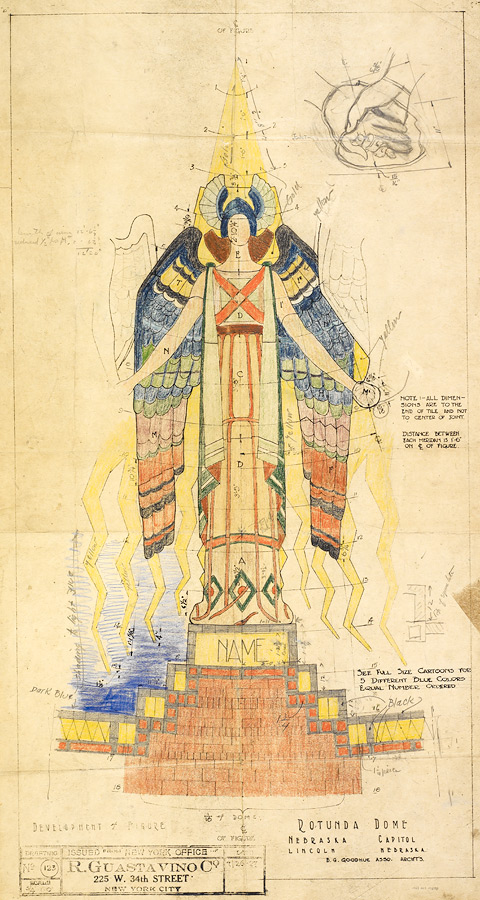
Development of the Figure, No. 123, 7/26/27, blackline print with colored pencil on paper. Avery Architectural and Fine Arts Library, Columbia University, New York, 1963.002.00858
He concluded:
These comments are not to be regarded as more than queries. For the design as a whole my admiration is very great; it is just what the dome ought to carry.3
Meière, too, was pleased with the dome, describing its effect as “glittering and magnificent,” with “no mechanical, dead surface anywhere, and the light plays over it happily, as over good mosaics.”4
See Catherine Coleman Brawer, Walls Speak: The Narrative Art of Hildreth Meière (St. Bonaventure, N.Y.: St. Bonaventure University, 2009): 28-31.
Hartley Burr Alexander, letter to Francis L. Mayers, January 27, 1926, Hartley Burr Alexander Papers, Ella Strong Denison Library, Scripps College, Claremont , California.
Alexander, letter to Francis L. Mayers, January 27, 1926.
Hildreth Meière, “Distinguished Artist Comes Home for Visit: Miss Hildreth Meière Tells of the Interesting Work in which She Is Engaged,” Women’s City Club Magazine (San Francisco) 1: 2 (March 1927): 10.